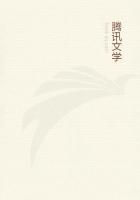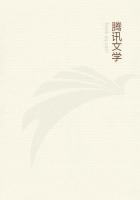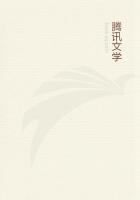Maggie, too, was not long before she re-entered.All the pride of her nature was stung into activity: the hateful weakness which had dragged her within reach of this wound to her self-respect, had at least wrought its own cure.The thoughts and temptations of the last month should all be flung away into an unvisited chamber of memory: there was nothing to allure her now; duty would be easy, and all the old calm purposes would reign peacefully once more.She re-entered the drawing-room still with some excited brightness in her face, but with a sense of proud self-command that defied anything to agitate her.She refused to dance again, but she talked quite readily and calmly with every one who addressed her.And when they got home that night, she kissed Lucy with a free heart, almost exulting in this scorching moment which had delivered her from the possibility of another word or look that would have the stamp of treachery towards that gentle, unsuspicious sister.
The next morning Maggie did not set off to Basset quite so soon as she had expected.Her mother was to accompany her in the carriage, and household business could not be despatched hastily by Mrs Tulliver.So Maggie, who had been in a hurry to prepare herself, had to sit waiting, equipped for the drive, in the garden.Lucy was busy in the house wrapping up some bazaar presents for the younger ones at Basset, and when there was a loud ring at the doorbell, Maggie felt some alarm lest Lucy should bring out Stephen to her: it was sure to be Stephen.
But presently the visitor came out into the garden alone, and seated himself by her on the garden chair.It was not Stephen.
`We can just catch the tips of the Scotch firs, Maggie, from this seat,'
said Philip.
They had taken each other's hands in silence, but Maggie had looked at him with a more complete revival of the old childlike affectionate smile than he had seen before, and he felt encouraged.
`Yes,' she said, `I often look at them, and wish I could see the low sunlight on the stems again.But I have never been that way but once -to the churchyard, with my mother.'
`I have been there - I go there - continually,' said Philip.`I have nothing but the past to live upon.'
A keen remembrance and keen pity impelled Maggie to put her hand in Philip's.They had so often walked hand in hand!
`I remember all the spots - just where you told me of particular things - beautiful stories that I had never heard of before.'
`You will go there again soon - won't you, Maggie?' said Philip, getting timid and tremulous.`The Mill will soon be your brother's home again.'
`Yes - but I shall not be there,' said Maggie.`I shall only hear of that happiness.I am going away again - Lucy has not told you, perhaps?'
`Then the future will never join on to the past again, Maggie? - That book is quite closed?'
The grey eyes that had so often looked up at her with entreating worship, looked up at her now, with a last struggling ray of hope in them, and Maggie met them with her large sincere gaze.
`That book never will be closed, Philip,' she said, with grave sadness.
`I desire no future that will break the ties of the past.But the tie to my brother is one of the strongest.I can do nothing willingly that will divide me always from him.'
`Is that the only reason that would keep us apart for ever, Maggie?'
said Philip, with a desperate determination to have a definite answer.
`The only reason,' said Maggie, with calm decision.And she believed it.At that moment she felt as if the enchanted cup had been dashed to the ground.The reactionary excitement that gave her a proud self-mastery had not subsided, and she looked at the future with a sense of calm choice.
They sat hand in hand without looking at each other or speaking for a few minutes: in Maggie's mind the first scenes of love and parting were more present than the actual moment, and she was looking at Philip in the Red Deeps.
Philip felt that he ought to have been thoroughly happy in that answer of hers: she was as open and transparent as a rock-pool.Why was he not thoroughly happy? - Jealousy is never satisfied with anything short of an omniscience that would detect the subtlest fold of the heart.














